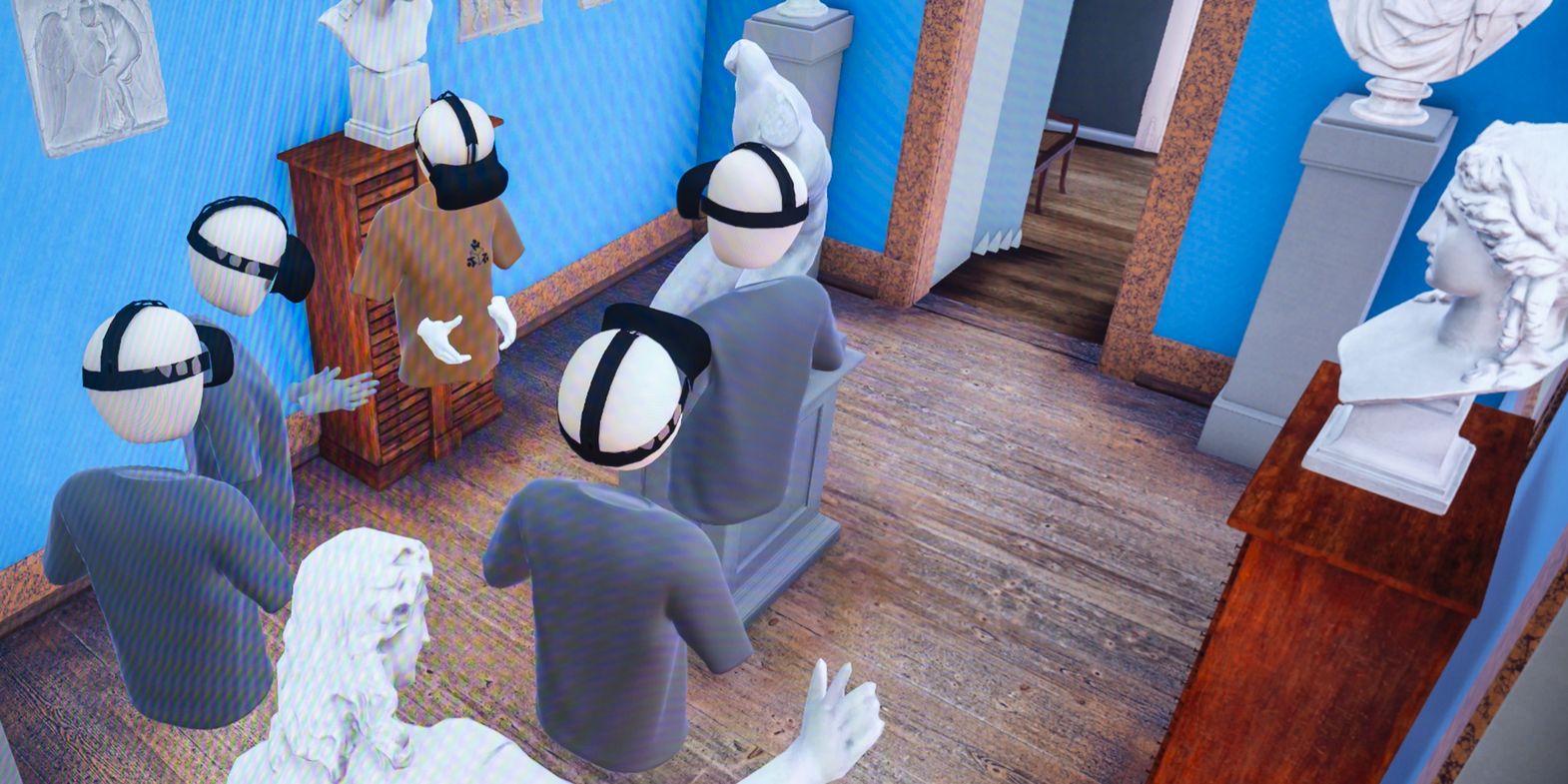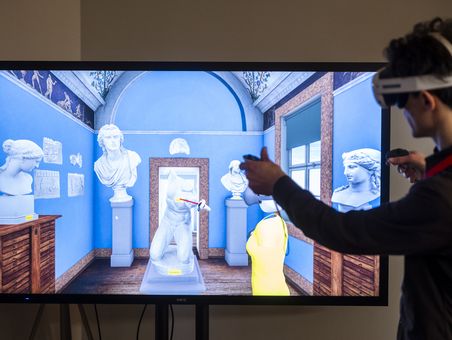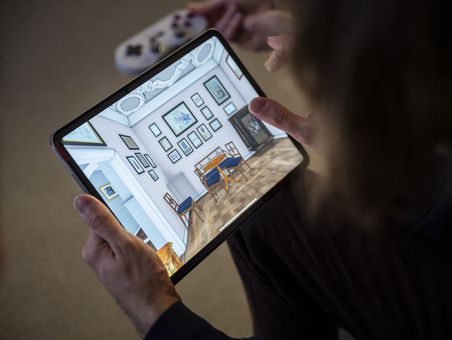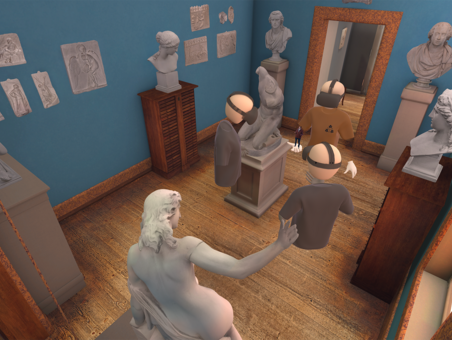Projects of the Klassik Stiftung Weimar are funded by the European Regional Development Fund (ERDF) and the Free State of Thuringia, represented by the State Chancellery of Thuringia, Department of Culture and the Arts.
Goethe Live 3D
A visit to Goethe's virtual home

Experience Goethe's home in virtual reality
With VR glasses, embark on a fascinating journey into Goethe's Weimar home at Frauenplan 1 - digitally reconstructed in impressive detail. Discover the entire house and garden in a virtual overview or immerse yourself in selected living rooms, which have been faithfully recreated as high-resolution 3D models.
Interactive. Lively. Up close.
Whether remodelling the rooms - in the spirit of Goethe - or travelling back in time through his living and working environments: Goethe-Live-3D brings culture to life and invites you to actively engage with history. The virtual experience opens up new perspectives on cultural heritage and promotes participation in an innovative way.



A project with a future
Goethe-Live-3D is part of a research project funded by the Federal Ministry of Education and Research (BMBF) and carried out by the Klassik Stiftung Weimar in cooperation with the Bauhaus-Universität Weimar, consensive GmbH and other partners. Even after the project is completed in autumn 2024, the service will continue to be developed further - based on the needs of users and the opportunities offered by digital mediation.Plans include the following:
- The development of further rooms in virtual reality
- Digital tours of Goethe's residence
- Joint visits from different locations - networked via VR
Try it out now!
Experience Goethe-Live-3D for yourself - on the dates listed in the events calendar.
Take a look behind the scenes
Read our blog article on the ideas workshop ‘Unveiling Spaces - making the invisible visible’. Under the direction of Franziska Ritter (TU Berlin) and Prof. Pablo Dornhege (HTW Berlin), 18 students from Germany and Austria developed creative concepts for new perspectives on Goethe's home and workplace.
Currently, during the opening hours of Goethe-Live-3D, visitors can also explore AR applications developed by students of Darmstadt University of Applied Sciences. The projects were created in cooperation with the Klassik Stiftung Weimar during the winter semester 2024/25.
When capacity allows, visitors may attend a puppet theatre performance, create a personalized Goethe portrait, or discover new possibilities for interactive mixed reality tours.
Goethe's Puppet Theater
By Aaron Höhn, Philip Owor and Oscar Pohl
An interactive experience where users place two puppets into a theater, generating AI-driven plays featuring historical and fictional characters based on Goethe’s life.
Paint Goethe
By Mariia Kostiukova, Zornitsa Dimitrova, Ryoma Oka, Colin Drobek and Chuanting Kuo
Create a portrait of Goethe out of different pieces of his vast collection and learn about the history of each selected piece.
Mixed Reality Tour Guide
By Elorm Katsekpor, Lilli Belle Wanner, Tatiana Gvozdenko and Stiliyan Dimitrov
Enhancing the experience of Goethe’s Residence by a quill guiding the visitor from one exhibit to another and giving the opportunity to interact and learn about it.

